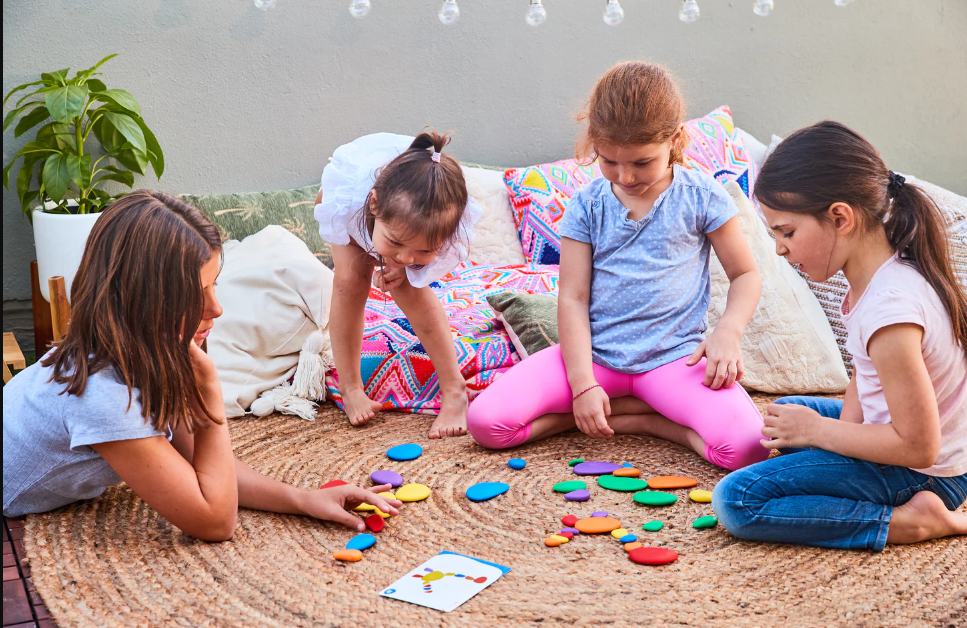Cultivating Early Minds: The Vital Significance of Habits in Childhood Growth
Table of Contents
ToggleEarly Minds
The formative years of childhood lay the groundwork for a lifetime of learning and growth. Amidst the various aspects that shape a child’s development, the significance of habits often stands unparalleled. Habits, both big and small, play a pivotal role in molding young minds, nurturing crucial skills, and laying the foundation for a successful future.
- Habit Formation: Building Blocks of Character
Habits are more than mere routines; they are building blocks of character. From simple tasks like tidying up toys to the consistency in following a routine, these habits instill values like responsibility, discipline, and organization. They set the stage for a child’s moral compass and ethical understanding.
- The Impact of Routine on Stability
A structured routine provides children with a sense of security and stability. Consistent meal times, bedtime rituals, and play schedules create a framework that fosters emotional well-being. This stability aids in reducing stress, improving sleep patterns, and enhancing overall behavior.
- Healthy Habits: A Lifelong Gift
Instilling healthy habits early on significantly impacts a child’s physical and mental health. Encouraging nutritious eating habits, promoting regular physical activity, and emphasizing personal hygiene lay the groundwork for a lifetime of well-being.
You are Reading Early Minds:
- Emotional Regulation Through Habits
Habits serve as tools for emotional regulation. Teaching children coping mechanisms like deep breathing during moments of frustration or incorporating mindfulness practices into daily routines equips them with strategies to manage their emotions effectively.
You are Reading Early Minds:
- The Power of Learning Habits
Establishing a love for learning through habitual practices sets the stage for academic success. Encouraging reading habits, facilitating curiosity-driven exploration, and nurturing a growth mindset instill a passion for knowledge and lifelong learning.
- Social Skills Cultivated through Habits
Habits also contribute to the development of social skills. Engaging in habits like sharing toys, taking turns, and expressing gratitude fosters empathy, cooperation, and communication skills, laying the groundwork for healthy relationships.
- Parental Influence and Modeling Habits
Parents and caregivers play a pivotal role in shaping a child’s habits. Modeling positive behaviors, offering consistent guidance, and providing a supportive environment create the foundation upon which children build their habits.
- Encouraging Independence through Habits
Habits nurture independence. Teaching age-appropriate tasks and allowing children to take responsibility for small chores fosters a sense of autonomy and self-reliance.
- Overcoming Challenges and Reinforcing Positive Habits
Navigating challenges is part of habit formation. Encourage perseverance, provide gentle reminders, and celebrate successes to reinforce positive habits while addressing setbacks with understanding and patience.
- Evolving Habits and Adapting to Change
As children grow, habits evolve. Emphasize adaptability and flexibility in habits, allowing room for change as they enter new phases of development or encounter different environments.
You are Reading Early Minds:
Conclusion:
In the intricate tapestry of childhood development, habits emerge as the threads that weave together character, emotional well-being, social aptitude, and academic success. By recognizing the significance of habits and their profound impact, we, as caregivers and educators, can lay a robust foundation for the holistic growth and flourishing of young minds.
As we nurture and guide these habits, we sculpt not just the behaviors but the essence of the individuals they will become—confident, resilient, and equipped to thrive in a complex and ever-changing world

